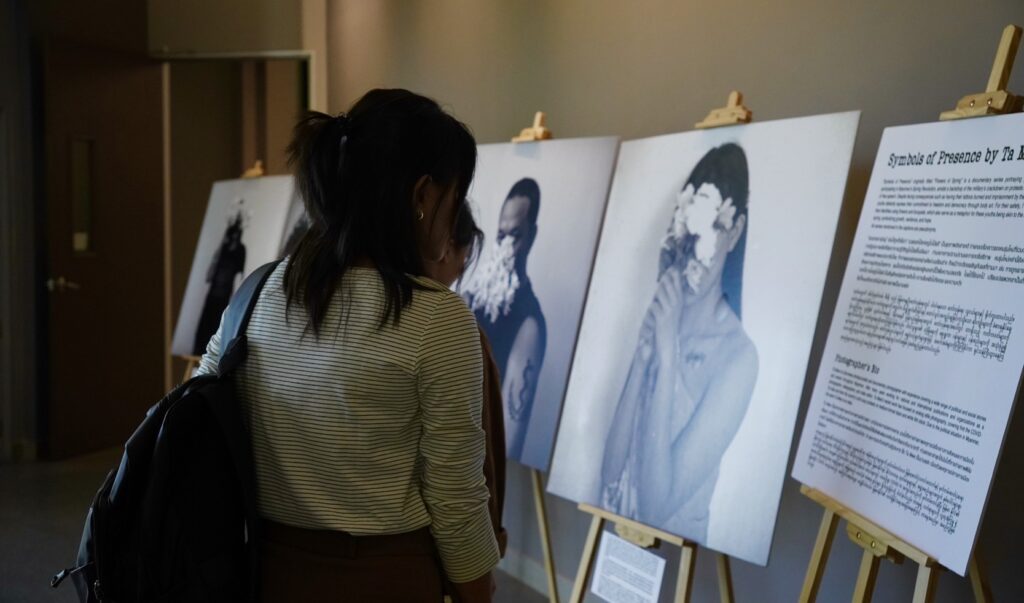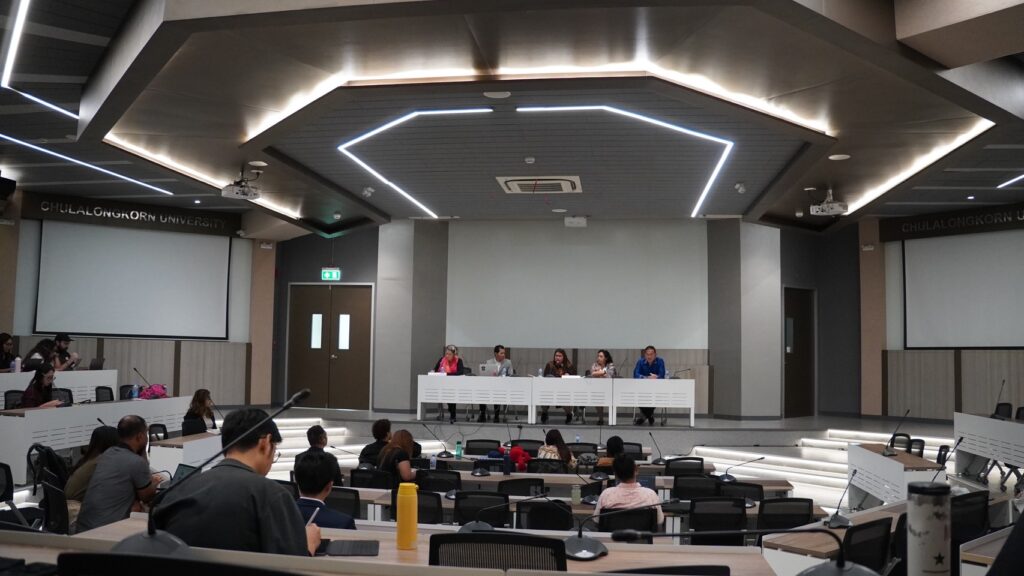Bangkok, Thailand, 25 June 2024 — Myanmar has a long and oppressive history of harrowing refugee crises and multiple human rights violations against refugees. February 1st of this year, 2024, marks the third commemoration of the military coup in the country. Ever since the coup, new waves of migration have flowed into neighbouring countries, with Thailand being the most convenient destination. Recently, this influx of migration has intensified exponentially due to the announcement of a mandatory conscription law by the Burmese military (နိုင်ငံတော်စီမံအုပ်ချုပ်ရေးကောင်စီ, State Administration Council/SAC) in their effort to defend against the advance of revolutionary forces.
This June, Asia Justice and Rights collaborated with the Asian Research Centre for Migration of the Institute of Asian Studies of Chulalongkorn University, Spirit in Education Movement (SEM), SEA-Junction, and Rohingya Youth Association in Southeast Asia (RAISA) to hold a “Compassion without Borders” World Refugee Day Event.

Held at Chulalongkorn University in Thailand on 20 June 2024, the films and art displayed during the event told the stories of youths who had faced violence during the early days of the coup, the lives of internally displaced persons, especially women that were affected by war, and the alienated experiences of refugees in their new temporary shelters. These artworks were created by the artists who had encountered these tragic experiences personally.
The event was attended by approximately 80 participants, including academics, survivors, and political activists. There was also a series of panels composed of scholars, activists, and stakeholders discussing refugee issues and the role of ASEAN’s five-point consensus formulated to help the crisis in Myanmar.
Associate Professor Dr. Pavika Sriratanaban, Director of the Institute of Asian Studies at Chulalongkorn University, opened the event with a speech reflecting on how, in today’s world, many people are displaced internally or externally due to their political allegiances. She emphasised the urgent need to eliminate the culture of forcing people to abandon their homes because of their beliefs.
Dr Maria Begum, the founder of RAISA, provided a brief overview of the situation in Rakhine State, highlighting the rapid changes affecting the Rohingya people and other displaced people. She expressed that since the announcement of the conscription law by SAC, Rohingya people have been victims of political manipulation and misinformation spread by the military. Many Rohingya people had been coerced by the SAC to fight against the Arakan Army (AA) with the false promise of being granted citizenship. She suggested that, “the protection of Rohingyas, and all people affected by conflict should be the priority for all stakeholders regardless of their political agendas, and it should be noted that Rohingya community leaders are always open to communication.”

The event’s panels focused on two key issues: the impact of Myanmar’s new conscription law on the refugee situation, and the potential of ASEAN’s five-point consensus to address the ongoing crisis. During the first panel, Dr Maria Begum said that although the Arakan Army (AA) maintains inclusive language in terms of its public policies, on-the-ground practices do not align with those policies. Additionally, the lack of communication between Rohingyas and the AA administration also means a lack of trust between the two communities. Regarding the border situation between Thailand and Myanmar, Ajarn Akkanut, a scholar and lecturer at Chulalongkorn University, stated, “There is progress on the Myanmar-Thailand border in the sense that it is no longer the old paradigm of securitisation, but governments are focusing on the protection of individuals.”
Hsu Yadanar Myint, a former leading member of the Students’ Union and an activist, said that to fix the problems Myanmar is facing, including that of the refugee crisis, mere regime change is not enough. Instead, “We need a systematic change that could tackle every past legacy of the country.” Salai Vanni Bawi, a Myanmar native researcher and active practitioner, also said, “It was fortunate that the Mizoram state bordering Myanmar is progressive because although Modi orders not to accept the refugees, Chin IDP are allowed to do so due to the kinship between them and Zomi.”
The second panel focused on discussions regarding ASEAN’s five-point consensus. Yuyun Wahyuningrum, Representative of Indonesia to the ASEAN Intergovernmental Commission on Human Rights (AICHR), pointed out that the success of the consensus largely depends on the political will of the member states. Ajarn Bhanubhatra Jittiang, an assistant professor and lecturer of the faculty of political science, agrees with Yuyun Wahyuningrum, stating, “ASEAN countries need to have the political will and open all doors of communication to successfully implement the goals of the consensus.”
Indria Fernida, a human rights lawyer and the Regional Program Manager of AJAR, also announced the plan to release an extensive report about the situation of refugees in Southeast Asia. At the end of the panel, Francis Zau Tu, Burma Country Manager of AJAR and human rights activist, openly suggests that “If the five-point consensus does not have a positive impact in the future, ASEAN should be honest that the crisis in Burma is too complicated for the organisation to handle, so that the world can also no longer turn a blind eye to the devastation happening in the country.”